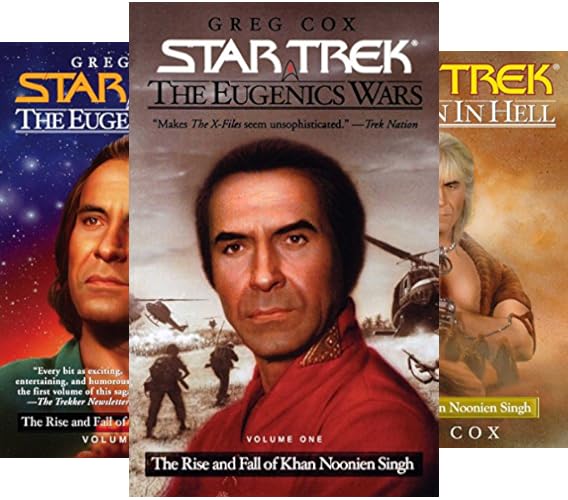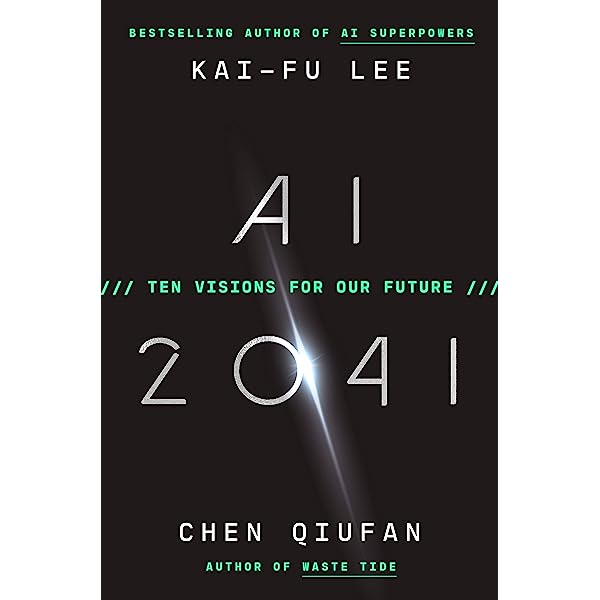Table of Contents
The 1990s were a pivotal decade for science fiction on television. It was a time when futuristic visions and extraterrestrial encounters captured the imaginations of viewers across the globe. From the groundbreaking investigations of “The X-Files” to the interstellar adventures of “Star Trek,” ’90s sci-fi shows left an indelible mark on the genre and continue to influence it to this day. In this article, we’ll explore some of the iconic ’90s sci-fi series and their enduring impact.
The 1990s indeed marked a pivotal era for science fiction on television and it’s no exaggeration to say that this period revolutionized the genre, leaving an indelible mark that continues to shape science fiction on-screen today. The ’90s were a time when futuristic possibilities and otherworldly encounters were not just a source of entertainment but also a lens through which viewers could explore the unknown.
At the forefront of this transformative decade was “The X-Files,” a series that blended science fiction with elements of horror and mystery. Agents Fox Mulder and Dana Scully’s relentless pursuit of unexplained phenomena and government conspiracies captivated audiences, sparking a cultural phenomenon known as “X-Philes.” The show’s iconic catchphrase, “The truth is out there,” became a rallying cry for those intrigued by the unexplained and its influence on paranormal and conspiracy culture endures.
“Star Trek,” while not a newcomer to the ’90s, continued to boldly go where no one had gone before. “Star Trek: The Next Generation” and its spin-offs expanded the Star Trek universe, exploring moral and ethical dilemmas in a futuristic setting. The series introduced viewers to a diverse and optimistic vision of the future, promoting ideals of tolerance, cooperation and exploration that remain relevant and aspirational.
Another notable ’90s gem was “The Outer Limits,” a revival of the classic ’60s anthology series. This show pushed the boundaries of storytelling by delving into thought-provoking and often philosophical themes, challenging the audience to ponder the ethical and moral implications of technological advancements and the human condition.
“Stargate SG-1” transported viewers to distant worlds through the use of ancient alien technology. The show combined elements of mythology, history and science fiction, weaving a narrative that explored the intersection of human and extraterrestrial civilizations. It laid the foundation for an expansive Stargate franchise that continues to explore the vastness of the universe.
The enduring impact of ’90s sci-fi series is evident in today’s television landscape. Shows like “Stranger Things” draw inspiration from the supernatural investigations of “The X-Files,” and the optimistic exploration of the cosmos in “Star Trek” continues to influence contemporary sci-fi narratives. The legacy of “The Outer Limits” lives on in anthology series that challenge conventional storytelling.
In conclusion, the 1990s were a golden age for science fiction on television, a period of exploration, imagination and contemplation. These iconic ’90s sci-fi series not only captivated audiences during their original runs but also continue to inspire and influence the genre today. Their enduring impact is a testament to the timeless allure of science fiction as a means of exploring the unknown and reflecting on the human experience.
For additional details, consider exploring the related content available here By going dark, Star Trek: Discovery freed itself to look at the future in …
“The X-Files” (1993-2002): The Truth Is Out There
“The X-Files” was a cultural phenomenon that defined ’90s sci-fi television. Created by Chris Carter, the series followed FBI agents Fox Mulder and Dana Scully as they investigated paranormal and unexplained phenomena. The show masterfully blended elements of horror, conspiracy and science fiction, creating a sense of suspense and intrigue that kept viewers on the edge of their seats.
One of the show’s greatest strengths was its willingness to embrace a wide range of supernatural and extraterrestrial mysteries. “The X-Files” explored everything from government cover-ups and alien abductions to urban legends and cryptids. It also featured a rich mythology that delved into the existence of extraterrestrial life and a shadowy organization known as the Syndicate.
“The X-Files” not only entertained but also challenged viewers to question the nature of reality, government secrecy and the existence of otherworldly beings. Its impact on sci-fi television and pop culture as a whole is immeasurable and its legacy can be seen in subsequent series that continue to explore the unknown.
To expand your knowledge on this subject, make sure to read on at this location: The 10 Best Sci-Fi TV Shows Of The 90s (That Aren’t Star Trek)

While “Star Trek
The Next Generation” technically began in the late ’80s, its influence extended well into the ’90s and beyond. This iconic series, set in the 24th century, introduced audiences to a utopian vision of the future where humanity had overcome its divisions and was exploring the galaxy as part of the United Federation of Planets.
The show was celebrated for its thought-provoking moral dilemmas, exploration of ethical and philosophical questions and its depiction of a diverse and harmonious future. Captain Jean-Luc Picard, portrayed by Patrick Stewart, became an emblematic figure of leadership, diplomacy and intellectual curiosity.
While “Star Trek: The Next Generation” technically began in the late ’80s, its impact and influence extended well into the ’90s and far beyond. This iconic series not only transported viewers to the 24th century but also transported their imaginations to a future where humanity had overcome many of its divisions and was exploring the vastness of space as a unified force within the United Federation of Planets.
One of the show’s standout qualities was its presentation of a utopian vision of the future, a vision that resonated deeply with audiences during the ’90s and continues to do so today. At a time when the world was grappling with its fair share of challenges and uncertainties, “Star Trek: The Next Generation” provided a beacon of hope. It showcased a future where the pursuit of knowledge, exploration and diplomacy triumphed over conflict and strife.
The show’s enduring appeal can be attributed to its thought-provoking storytelling. Each episode presented moral dilemmas, ethical quandaries and philosophical questions that left viewers pondering long after the credits rolled. The series challenged preconceived notions and encouraged critical thinking, making it a truly intellectual endeavor.
Furthermore, “Star Trek: The Next Generation” was ahead of its time in its portrayal of diversity and harmony. Its multicultural and multispecies crew, led by Captain Jean-Luc Picard, portrayed by the indomitable Patrick Stewart, demonstrated that cooperation and understanding could bridge even the widest of gaps. Picard himself became an emblematic figure of leadership, diplomacy and intellectual curiosity, an inspiration to many who aspired to those qualities in their own lives.
In essence, “Star Trek: The Next Generation” was not just a television show of the ’90s; it was a guiding star that offered a vision of what humanity could become. Its enduring legacy is a testament to the enduring appeal of optimistic science fiction, the power of thought-provoking storytelling and the timeless desire to strive for a better future. As we continue into the 21st century and beyond, its message of unity, exploration and ethical responsibility remains as relevant as ever.
If you’d like to dive deeper into this subject, there’s more to discover on this page: The 10 Best Sci-Fi TV Shows Of The 90s (That Aren’t Star Trek)

“Star Trek
The Next Generation” demonstrated the enduring appeal of optimistic and aspirational sci-fi storytelling. It paved the way for subsequent “Star Trek” series and films, highlighting the enduring legacy of Gene Roddenberry’s vision of the future.
“Star Trek: The Next Generation” was more than just a successful television series; it was a testament to the enduring power of optimistic and aspirational science fiction storytelling. Here’s how this iconic show not only left an indelible mark on the “Star Trek” franchise but also showcased the lasting legacy of Gene Roddenberry’s visionary outlook on the future:
Reimagining the Future: “The Next Generation” reimagined the future with a sense of hope and progress. It presented a vision of humanity where we had overcome many of our societal challenges and were working together as a united and enlightened species. This optimistic view of the future served as a beacon of hope for viewers.
Diverse and Inclusive: The show was ahead of its time in terms of diversity and inclusion. It featured a diverse crew working harmoniously together, showcasing the potential for a future where differences were celebrated and respected. This theme of inclusivity continues to be a core value of the “Star Trek” franchise.
Moral Dilemmas and Ethical Questions: “The Next Generation” didn’t just offer action-packed space adventures; it tackled complex moral dilemmas and ethical questions. Episodes like “The Measure of a Man” and “The Inner Light” challenged viewers to think deeply about issues like individual rights and the impact of our actions on others.
Character Development: The show’s characters were multi-dimensional and experienced significant growth throughout the series. Captain Jean-Luc Picard, in particular, became an iconic figure known for his wisdom and diplomacy. His leadership style and commitment to ethical principles left a lasting impression on fans.
Inspiring Exploration: “The Next Generation” emphasized the spirit of exploration and curiosity. It encouraged viewers to embrace the unknown, seek knowledge and approach challenges with an open mind. This theme of exploration has been a central tenet of the “Star Trek” franchise as a whole.
Technological Innovation: The show introduced futuristic technologies like the holodeck, replicators and tablet-like personal data devices. Some of these concepts have since inspired real-world technological innovations, demonstrating the show’s influence on the tech industry.
Legacy of Spin-Offs and Films: The success of “The Next Generation” led to several spin-off series and films, expanding the “Star Trek” universe. These productions continued to uphold the franchise’s values of exploration, diversity and ethical inquiry, further solidifying its legacy.
Cultural Impact: “The Next Generation” has had a lasting impact on popular culture, with phrases like “Make it so” and “Engage” becoming part of everyday vernacular. Iconic characters like Data, Worf and Counselor Troi remain beloved by fans.
Fan Engagement: The passionate fanbase of “The Next Generation” has kept the spirit of the show alive through conventions, fan fiction and online communities. This level of engagement showcases the enduring love for the series.
Hope for the Future: In an era where dystopian narratives often dominate science fiction, “The Next Generation” continues to offer a hopeful and aspirational vision of the future. It reminds us that, despite our challenges, we have the potential to create a better world through cooperation, compassion and exploration.
In conclusion, “Star Trek: The Next Generation” stands as a shining example of how optimistic science fiction storytelling can captivate and inspire audiences. Its enduring legacy within the “Star Trek” franchise and its impact on the genre as a whole highlight the enduring relevance of Gene Roddenberry’s vision and the potential for a brighter future.
Explore this link for a more extensive examination of the topic: Visions of the Future

“Babylon 5” (1994-1998): A Space Opera with Depth
“Babylon 5” was a unique and ambitious space opera that set itself apart from the sci-fi conventions of its time. Created by J. Michael Straczynski, the series followed the inhabitants of the space station Babylon 5 as they navigated political intrigue, interstellar conflicts and the mysteries of an enigmatic ancient race known as the Shadows.
What made “Babylon 5” stand out was its complex, multi-season narrative that allowed for long-term character development and intricate storytelling. The show addressed themes of diplomacy, war, religion and destiny, offering viewers a rich and immersive sci-fi experience.
“Babylon 5” was a trailblazing space opera that defied the sci-fi norms of its era. In the vast cosmos of science fiction, it shone as a unique gem, thanks to its visionary creator, J. Michael Straczynski. This series didn’t merely follow the sci-fi playbook; it rewrote the rules.
Set aboard the sprawling space station Babylon 5, the show plunged viewers into a world where political intrigue, interstellar conflicts and ancient enigmas unfurled in grand fashion. At its heart was a narrative structure that was groundbreaking for its time—a multi-season arc that allowed for intricate storytelling and character development on a scale rarely seen in episodic television.
“Babylon 5” was unafraid to tackle weighty themes. It delved into the complexities of diplomacy, the horrors of war, the mysteries of religion and the inexorable pull of destiny. This willingness to explore such profound subjects set it apart as not just a sci-fi show but a sophisticated exploration of the human condition.
The characters of “Babylon 5” were not static figures; they evolved over time, responding to the challenges and conflicts they faced. This long-term character development added depth and authenticity to the storytelling, creating a bond between the audience and the inhabitants of this distant space station.
Moreover, the series was a masterclass in world-building, with its intricate lore, alien races and deep mythology. It invited viewers to immerse themselves in a richly detailed universe that felt both vast and intimate.
In essence, “Babylon 5” was a pioneer in the realm of televised science fiction. Its ambition, complexity and willingness to grapple with profound themes elevated it to a league of its own. While it may have concluded its run, its legacy endures as a benchmark for the genre, proving that sci-fi can be both intellectually stimulating and emotionally resonant.
You can also read more about this here: What are the best science fiction television series? – Quora

The Enduring Impact
The ’90s sci-fi shows mentioned here continue to inspire and shape the genre to this day. They demonstrated the power of science fiction to explore profound questions about the human condition, the nature of the universe and the possibilities of the future. These series, with their compelling characters and imaginative worlds, continue to captivate audiences and remind us that the quest for knowledge and the exploration of the unknown are timeless endeavors in the world of science fiction.
The impact of ’90s sci-fi shows on the genre is nothing short of profound and their influence reverberates through the present day. These series weren’t just entertaining; they were intellectual and emotional journeys that delved into the very essence of our existence.
1. Provoking Thought: The hallmark of these shows was their ability to provoke thought. They ventured into the realms of philosophy, ethics and metaphysics, challenging viewers to contemplate profound questions. Whether it was the nature of artificial intelligence in “The X-Files” or the consequences of time travel in “The Twilight Zone,” these series dared to explore the uncharted territory of the human mind.
2. The Human Condition: At their core, these shows were about the human condition. They used science fiction as a lens through which to examine the complexities of human nature, our hopes and fears and our innate curiosity. Characters like Mulder and Scully, Picard and Data and Fox and Dana were not just vessels for storytelling; they were mirrors reflecting our own struggles and aspirations.
3. The Endless Frontier: Science fiction is, by definition, about pushing boundaries and exploring the unknown. These shows embodied this spirit of exploration, reminding us of the infinite possibilities that lie beyond our understanding. They encouraged us to dream, to wonder and to embrace the idea that the universe is a vast and mysterious place waiting to be discovered.
4. Lasting Resonance: The enduring appeal of these series lies in their timeless relevance. While the technology portrayed may have evolved, the fundamental questions they raised about humanity and the universe remain as pertinent as ever. The issues of ethics in technology, the search for extraterrestrial life and the consequences of our actions in the pursuit of knowledge continue to resonate in an ever-changing world.
In essence, the ’90s sci-fi shows were pioneers in their own right, pushing the boundaries of storytelling and challenging our preconceptions about the world around us. They demonstrated that science fiction is not just about predicting the future or showcasing dazzling technology; it’s about exploring the depths of our own humanity and the universe in which we exist. As we continue to look to the stars and explore the frontiers of science, these shows serve as guiding lights, reminding us that the quest for knowledge and the exploration of the unknown are timeless endeavors that define the very essence of science fiction.
Additionally, you can find further information on this topic by visiting this page: Reimagining our futures together: a new social contract for education

More links
Should you desire more in-depth information, it’s available for your perusal on this page: The 10 Best Sci-Fi TV Shows Of The 90s (That Aren’t Star Trek)
